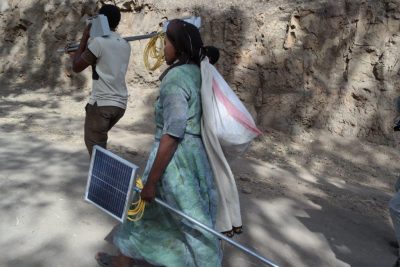News & Articles
Finance
- News
- The World Bank
- News
There is no one size fits all on climate policy: each country and context will play a significant role in making sure that priority needs are met, the right resources acquired, and implications well understood. But three “building block” principles can underpin these efforts and strengthen the complementary climate policy/climate finanance nexus:
- News
- Forbes
- News
In many countries, women can’t own the assets they need as collateral for a loan, with just 14 countries giving women the same economic rights as men, according to the foundation. Lack of access to capital is a particular obstacle in countries facing very high inflation, such as Nigeria, where inflation is 18.8%, the report notes.
- News
- Techpoint Africa
- News
With individuals and investors flush with cash, the standards for raising venture capital fell, and startups that would not have otherwise raised venture capital did. That has caused a shift in startup and venture capital circles. While startups now have a harder time raising, investors also report similar difficulties when raising from partners.

- Katrina Lehmann-Grube, Imraan Valodia, Julia Taylor and Sonia Phalatse
- Article
We take a closer look at the Just Energy Transition grants register and some of the key trends, to determine who the money has gone to, when it was disbursed and what it was spent on.
- News
- The East African
- News
Across Africa, thousands of people are estimated to have lost their jobs in the wave of start-up closures and scale-backs last year, mostly in the top four start-up markets on the continent – Nigeria, Kenya, Egypt and South Africa. Last year, the amount of funding raised by start-ups on the continent declined by 31 percent to about $4.5 billion.
- News
- Financier Worldwide
- News
This article looks at the vital role of concessional financing in helping to achieve climate change objectives in emerging markets, through helping to make small scale power initiatives economically viable for developers and their financiers in traditionally high-risk investment markets. In this discussion of small scale renewable power initiatives
- Rose Ng’ang’a
- Article
Western philanthropies, including foundations, funds, and others, spend billions of dollars annually to help countries adapt to climate change by investing in clean energy. However, compared to the funds dedicated to projects in poor countries in the world, the disparities are so huge that one gets a sense of an apartheid-like culture.
- Odd News
- The East African
- News
The bank, a partnership between Afreximbank and the African Petroleum Producers Organisation, is meant to help plug a funding gap in Africa amid pressure on major banks from environmental groups to shift investment dollars away from climate-warming oil and gas projects. The bank is set to start operations this year with an initial $5 billion.
- News
- The East African
- News
Kenya has defied a global funding drought for budding companies to post a 17 percent increase in new startup investments, toppling Nigeria and Egypt as the continent’s largest destination for startup financing. In 2023, 62 Kenyan startups raised an estimated $673.78 million from local and international investors, a rise from the $574.8 mln in 2023.
Press Releases
- Gaia Impact, Capital Croissance, Schneider Electric, Capelan and I&P
- Solar Frontier Capital Limited (SFC)
- responsAbility Investments AG
Latest Documents
- Energy 4 Impact
- 2021
Find more than 2,000 documents
to download in our Library.


